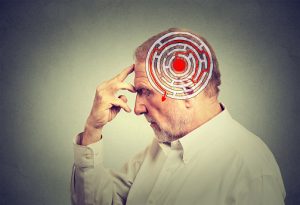
A large-scale study evaluating data from more than 2,000 mentally fit people over the age of 65 examined the theory that experiences in early and mid-life that challenge the brain make people more resilient to changes resulting from age and illness, maintaining a higher “cognitive reserve.”
The research team gathered data through interviews with elderly participants in a study they dubbed the Cognitive Function and Aging Study Wales (CFAS-Wales). They wanted to know whether a healthy lifestyle was associated with better performance on a mental ability test. They found that a healthy diet, increased physical activity, more social and mentally stimulating activity, and even moderate alcohol consumption all seem to contribute to increased cognitive performance.
“People who engage in stimulating activity which stretches the brain, challenging it to use different strategies that exercise a variety of networks, have higher ‘Cognitive reserve.’ This builds a buffer in the brain, making it more resilient. It means signs of decline only become evident at a higher threshold of illness or decay than when this buffer is absent,” said Linda Clare, professor of clinical psychology of aging and dementia at the University of Exeter
She goes on to say that losing one’s mental ability later in life is not an absolute. If changes are made through healthy living and engaging in stimulating activities, we can all increase our chances of maintaining our own mental health. By knowing what contributes to decreased mental ability, we can take effective measures to control living full and active lives as we get older.
Collaborators of the study from the University of Bangor agreed with this conclusion, as analysis of the data found that people with healthier lifestyles had better scores on tests of mental ability.
“Our results highlight the important of policies and measures that encourage older people to make changes in their diet, exercise more, and engage in more socially oriented and mentally stimulating activities,” said professor Bob Woods of Bangor University.
Related: Mental health, brain power can be restored with vigorous exercise in older adults